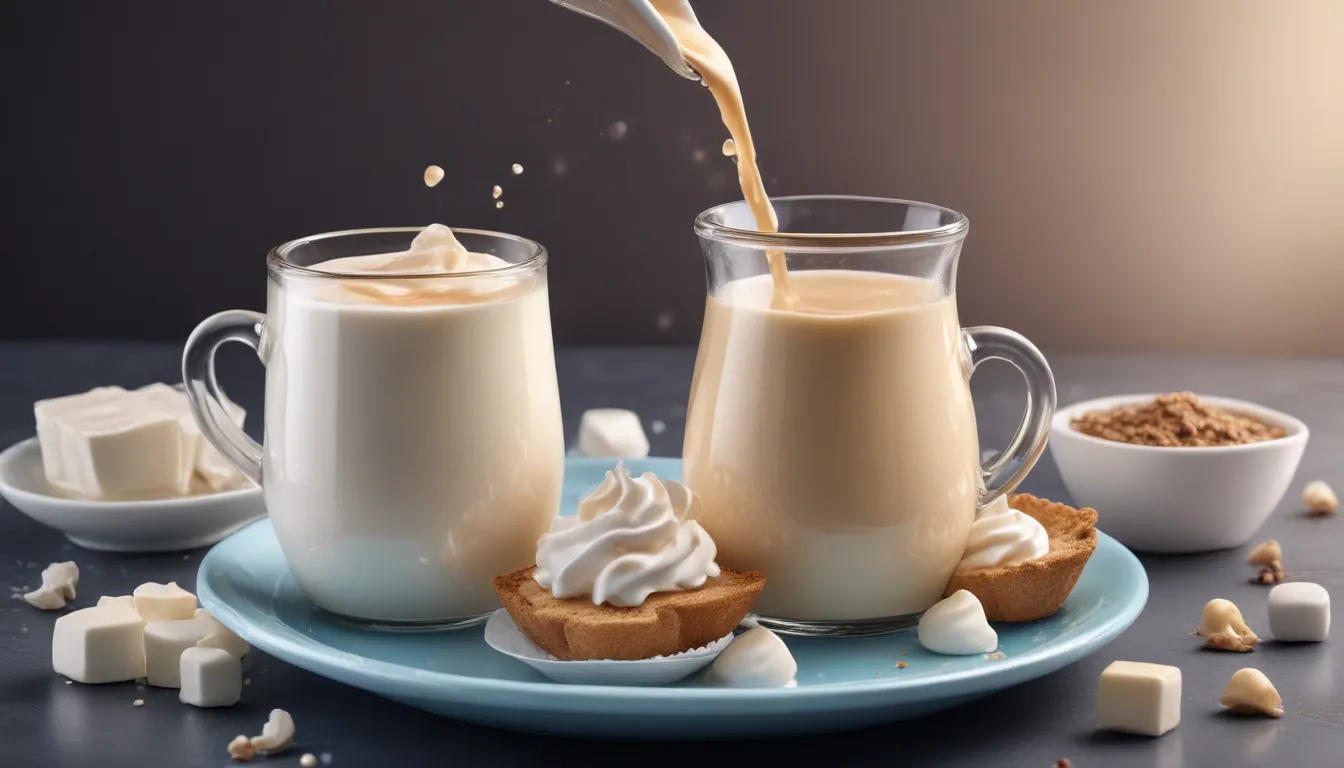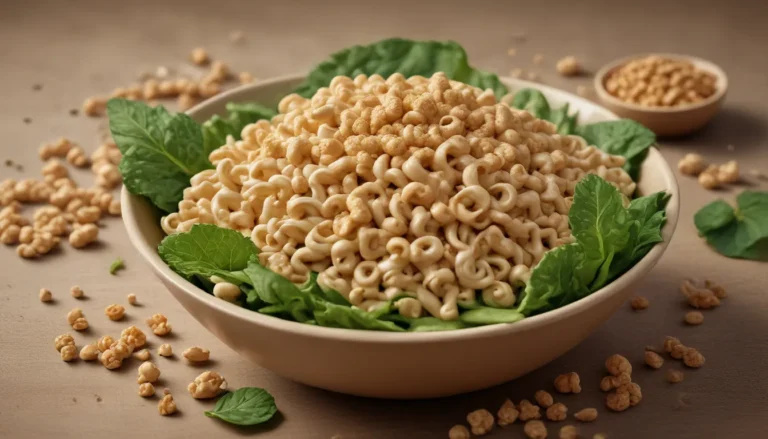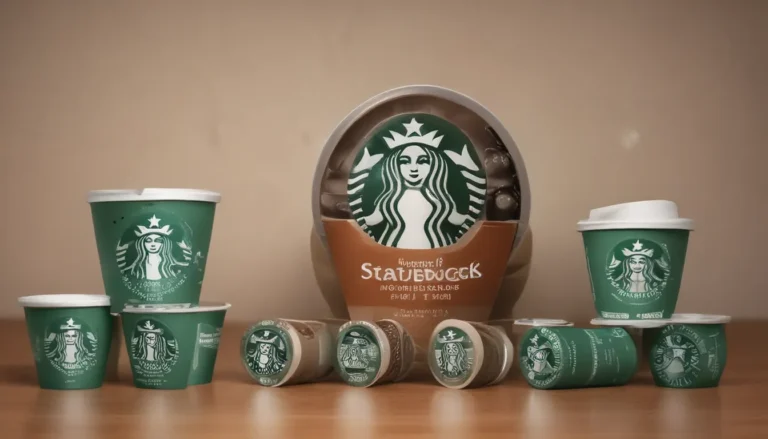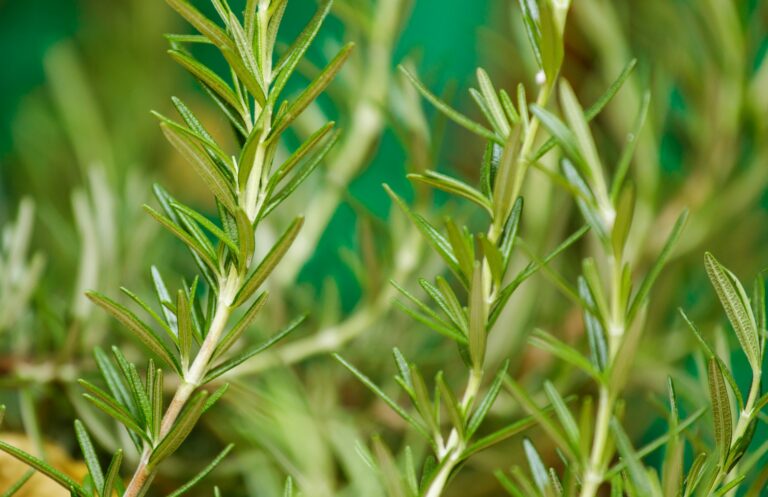The pictures in our articles might not always show exactly what the text is talking about. We use these images to make the article more interesting and eye-catching. They are there to add to the text, but not to replace it or show every detail.
Looking for a creamy alternative to dairy in your beverages? Non-dairy creamers might just be the solution you've been searching for. Whether you're lactose intolerant, vegan, or simply prefer non-dairy options, these versatile substitutes come in various flavors and can elevate your coffee, tea, smoothies, and more.
In this comprehensive guide, we will dive into the world of non-dairy creamer nutrition, exploring key facts about their ingredients, calorie content, fat content, sugar content, and more. Whether you're looking to make informed dietary choices or simply curious about what you're consuming, this article will provide you with all the information you need to know about non-dairy creamers. So, grab your favorite beverage, sit back, and let's explore the world of non-dairy creamers together!
Understanding Non-Dairy Creamer Nutrition
Non-dairy creamers offer a convenient and creamy alternative to traditional dairy creamers. While they can enhance the flavor and texture of beverages, it's essential to understand their nutritional content to make informed choices about consumption. Let's delve into some key nutrition facts about non-dairy creamers:
1. High in Calories and Saturated Fats
- Non-dairy creamers are known for their creamy texture but are also high in calories, with a typical serving containing around 35-45 calories.
- They also tend to contain saturated fats, which can contribute to increased cholesterol levels. It's essential to watch portion sizes and consider lower-fat alternatives for a healthier option.
2. Low in Protein and Fiber
- Protein content in non-dairy creamers is generally low, providing less than 1 gram per serving.
- Similarly, these creamers have limited fiber content, which is crucial for overall digestive health. Incorporating fiber-rich foods into your diet is important for maintaining balance.
3. Ingredients and Additives
- Non-dairy creamers may include artificial sweeteners to enhance taste. It's essential to be mindful of your intake of these additives and their potential health risks.
- They are commonly made with vegetable oils like palm oil or soybean oil, which contribute to their creamy texture and flavor profile.
4. Vegan-Friendly Options
- Some varieties of non-dairy creamers are vegan-friendly, free from any animal products or by-products. They provide a creamy alternative for those following a vegan diet.
5. Flavor Profiles and Versatility
- Non-dairy creamers are available in a wide range of flavors such as vanilla, hazelnut, caramel, and more. This variety allows for customization and versatility in enhancing the taste of your favorite beverages.
- They offer a less intense flavor compared to dairy creamers, appealing to those who prefer a more subtle taste in their drinks.
Making Informed Choices
While non-dairy creamers can be a convenient option for those with dietary restrictions, it's essential to be mindful of their nutritional content. Here are some tips for making informed choices when selecting and consuming non-dairy creamers:
- Read Labels: Pay attention to the ingredients list and choose options with minimal processed ingredients and added sugars.
- Monitor Portion Sizes: Be mindful of your serving sizes to avoid excessive calorie intake.
- Check for Additives: Look out for additives like sweeteners and thickeners and opt for products with fewer or no additives.
- Store Properly: Follow the storage instructions on the packaging to maintain the quality of your non-dairy creamers.
By being aware of the nutrition facts and ingredients in non-dairy creamers, you can enjoy your favorite beverages while maintaining a balanced and healthy lifestyle.
Frequently Asked Questions about Non-Dairy Creamers
Q: Are non-dairy creamers suitable for people with lactose intolerance?
A: Yes, non-dairy creamers are a great alternative for people with lactose intolerance as they do not contain any lactose.
Q: Can non-dairy creamers be used in cooking and baking?
A: Yes, non-dairy creamers can be used in cooking and baking as a substitute for dairy cream in various recipes.
Q: Are non-dairy creamers healthier than dairy creamers?
A: Non-dairy creamers tend to have lower calories and fat content compared to dairy creamers. However, it is essential to check the labels for added sugars and additives.
Q: Do non-dairy creamers contain any allergens?
A: Some non-dairy creamers may contain soy or almond, so individuals with allergies should check the ingredient list carefully.
Q: Can non-dairy creamers be used in hot beverages?
A: Yes, non-dairy creamers can be added to hot beverages such as coffee, tea, or hot cocoa.
Q: How should non-dairy creamers be stored?
A: Non-dairy creamers should be stored according to the instructions on the packaging. Typically, they should be kept in a cool and dry place.
Our commitment to providing accurate and engaging content is reflected in the information we share about non-dairy creamer nutrition. Each fact is contributed by real users like you, ensuring diverse insights and credible information. Trust in our dedication to quality and authenticity as you explore and learn with us.






